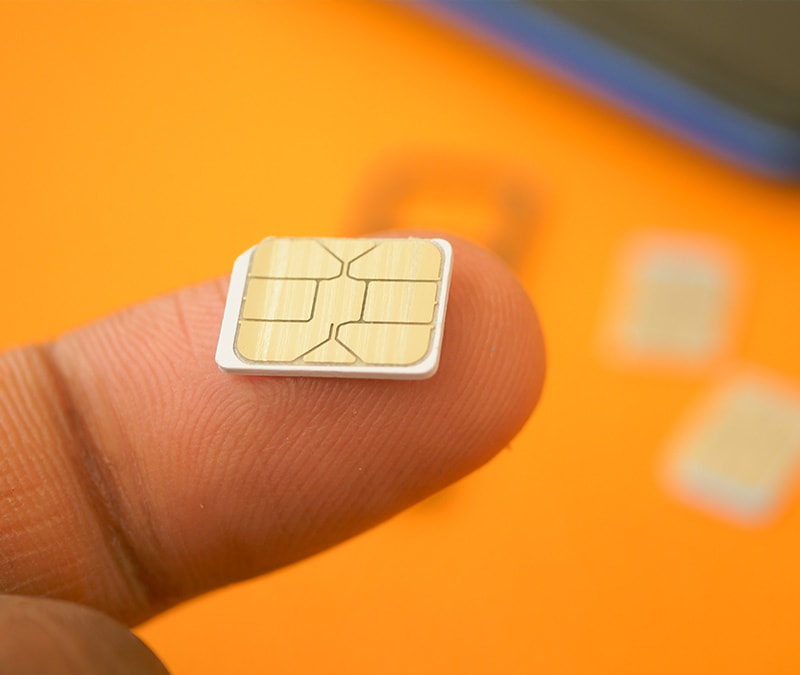Child identity theft: What parents need to know
Child identity theft can go on for years before it’s discovered. Learn what parents can do to help protect their kids from this threat.

If you have kids, you likely have a lot on your mind. If child identity theft isn’t part of the mix, you might want to consider adding it. Identity thieves can do the same kind of damage with a child’s personal information as they can with an adult’s. And it can take even longer to realize something’s wrong.
Why are children targets of identity theft?
Think about it. You probably have a good sense of your credit history and credit score. But have you ever checked your child’s credit report? Why would you?
But if identity thieves manage to put their hands on your child’s Social Security number, they can use it to open credit accounts, take out bank loans, and open utility accounts, effectively building your child’s credit. And those thieves likely won’t think twice about ruining that credit history — because it’s not theirs.
Since a child wouldn't be using their Social Security number to, say, apply for credit or rent an apartment until much later in life, the crime can go unnoticed for years — until someone runs a credit check. Thieves can do a lot of damage in that time.
How does a child’s identity get compromised?
A child’s identity can be compromised in the same way as an adult’s. A data breach is one way information can be exposed — at a school, medical office, or other entity with whom you’ve shared your child’s personal information.
When that happens, the information can end up in the hands of criminals who can use it to steal identities. If the breached data includes Social Security numbers, the situation goes from bad to worse. You can’t easily replace a Social Security number, and that number is integral to one’s ability to obtain credit — including an identity thief’s ability to obtain credit in someone else’s name.
Foster youth and identity theft
Foster youth can be particularly vulnerable to identity theft. The reason? The large number of people who have access to their personal information. This access comes, in part, as the children in foster care move, along with their paperwork, from home to home, sometimes many times over.
Signs of child identity theft
There are a few telltale signs that your child may be a victim of identity theft, including:
- Your child receives calls from collection agencies.
- Your child receives bills or pre-approved credit card offers.
- Your child is denied government benefits because someone else is using his/her Social Security number.
- The IRS sends your child a delinquent tax notice.
- A bank or credit card company denies your child an account.
- The DMV denies your child a driver’s license.
What’s the worst that could happen?
Even though child identity theft can be resolved, doing so can be both time consuming and frustrating. Victims — or their parents — can spend hours, days, or even longer to restore a child’s good name.
The restoration process can involve calling or writing lenders, financial institutions, and other entities to close fraudulent accounts and wipe out fraudulent debt. To clear credit histories and clean up a credit report, victims may also have to work with the three major credit reporting agencies, Equifax, Experian, and TransUnion.
In cases of criminal identity theft, in which perpetrators fraudulently present themselves to law enforcement officers as someone else, authorities can arrest identity theft victims for crimes they didn’t commit. Criminal ID theft can require victims to work with police departments and the court system, as well as to hire lawyers and other experts to assist.
On top of all this, a child may learn about the identity theft at a most inconvenient time — when applying for a job, renting a first apartment, or taking out a school loan. The situation may put forward progress on hold until the issue can be resolved, possibly delaying employment, housing, or higher education.
What should I do as a parent?
What’s a parent to do? Use rule No. 1 of parenting: Be careful.
Limit sharing your child’s Social Security number. Just because someone asks for it doesn’t mean you need to share it. This includes school and medical office forms where the number often isn’t necessary. As you can imagine, it’s easy to steal information from these forms if the people handling them aren’t careful. When you do have to share such personal information, it never hurts to ask how the requester will protect it. At the very least, such a question reminds those involved that they’re handling very important data.
How can I help protect my child from identity theft?
You can take steps to help keep a child’s identity safe:
- Find safe locations for all paper and electronic documents that include your child’s Social Security number and other personal information.
- Limit sharing your child’s Social Security number.
- Shred documents with your child’s personal information before discarding them.
- When your child is old enough to understand, explain the importance of keeping Social Security numbers and other personal information safe.
- Keep your online devices free of viruses and spyware that criminals can use to mine your data.
If you learn that someone has misused your child’s information, ask each credit reporting agency to remove all accounts, account inquiries, and other information associated with your child’s name and Social Security number. Place a fraud alert on your child’s credit reports with each credit agency. And contact every business where your child’s information was misused to close fraudulent accounts and flag them for identity theft.
Child identity theft is one more thing you have to worry about as a parent. But if you take steps to help protect your child’s identity, you’ll help prepare them for a smooth transition to adulthood when the time comes.
Editorial note: Our articles provide educational information for you. Our offerings may not cover or protect against every type of crime, fraud, or threat we write about. Our goal is to increase awareness about Cyber Safety. Please review complete Terms during enrollment or setup. Remember that no one can prevent all identity theft or cybercrime, and that LifeLock does not monitor all transactions at all businesses. The Norton and LifeLock brands are part of Gen Digital Inc.





Want more?
Follow us for all the latest news, tips, and updates.